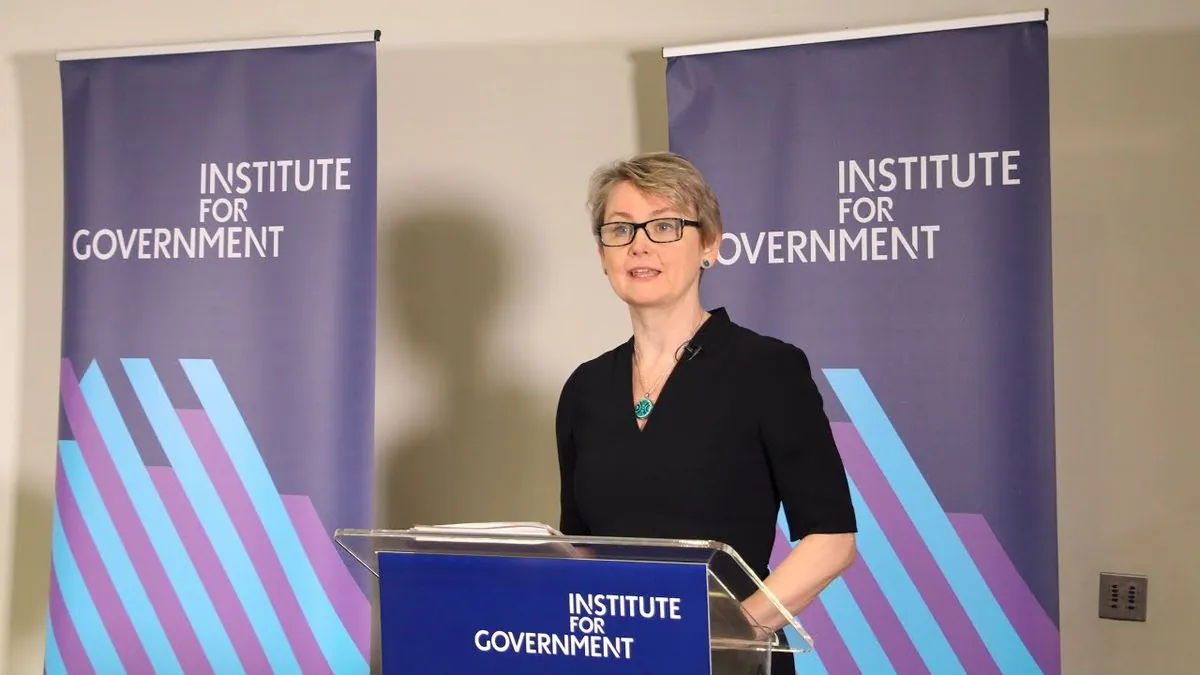UK Home Secretary's Hate Crime Law Review Sparks Free Speech Concerns
Home Secretary Yvette Cooper's plans to expand hate crime monitoring face criticism. Concerns arise over potential infringement on free speech and legitimate debate, amid rising tensions following the Israel-Gaza conflict.

In the United Kingdom, a contentious debate is unfolding regarding the delicate balance between safeguarding free expression and preventing hate crimes. Yvette Cooper, the Shadow Home Secretary, has proposed a review of hate crime laws that could potentially blur this distinction.
Cooper's plan involves encouraging law enforcement to monitor hate incidents that do not meet the threshold for criminal behavior. This approach mirrors previous policies that were rescinded by the preceding administration. The impetus for this review stems from a reported surge in anti-Semitic and Islamophobic abuse following the conflict between Israel and Gaza that began in October 2023.
While the intention to address discriminatory behavior is commendable, critics argue that these measures could infringe upon free speech rights. The UK has a long-standing tradition of protecting free expression, dating back to the Bill of Rights 1689. However, this right has been balanced with laws such as the Racial and Religious Hatred Act 2006, which criminalizes inciting hatred based on religious grounds.

The proposed changes raise questions about who would determine which non-criminal incidents merit recording and why. This concern is particularly relevant in light of recent pro-Palestinian demonstrations in London, where some protesters displayed anti-Semitic slogans with apparent impunity. The Metropolitan Police has faced criticism for its handling of these protests, highlighting the challenges in enforcing existing laws.
It's worth noting that the UK already has robust legislation to address hate crimes. The Equality Act 2010 protects against discrimination based on religion or belief, while the Public Order Act 1986 includes provisions against inciting racial hatred. Additionally, the Crown Prosecution Service has specific guidelines for prosecuting cases involving communications sent via social media.
Cooper is also considering introducing a specific definition of "Islamophobia." Critics argue that such a definition could effectively function as a blasphemy law, potentially criminalizing criticism of the religion and stifling legitimate debate. This is particularly sensitive given that the UK abolished its blasphemy laws for England and Wales in 2008.
The Labour Party, of which Cooper is a prominent member, maintains that it supports free speech. However, their actions in this matter have led some to question this commitment. The challenge lies in finding a balance that addresses genuinely abusive behavior without inadvertently providing extremists with justification for their activities.
As the UK grapples with these complex issues, it's crucial to remember that hate crime legislation in the country covers five protected characteristics: race, religion, sexual orientation, disability, and transgender identity. Any changes to these laws must carefully consider their impact on all affected groups.
The ongoing debate underscores the need for a nuanced approach to addressing hate crimes while preserving the fundamental right to free expression. As the UK continues to navigate these challenging waters, it will be essential to strike a balance that protects vulnerable communities without compromising the principles of open and free discourse.


































